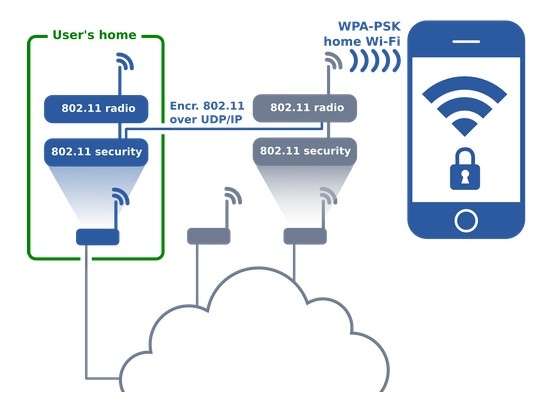A Swedish company called Anyfi Networks has released a Wi-Fi solution for Internet service providers to make your home wireless connection available from any access point. Company CTO Johan Almbladh describes the service as having your Wi-Fi network follow you around wherever you go.
Anyfi.net Simple, according to executives, is aptly named as the solution works seamlessly on the user’s end. If you have ever connected your device to Wi-Fi at home, it will connect automatically to any participating network. There is no software to install and no manual network registration or login to fool with – it works because the device finds exactly the network it is looking for.

The primary function of an access point is of course to provide access to the Local Area Network (LAN). Our software comes into play when the user is not authorized for such access. Instead of just refusing service our patent pending software dynamically allocates a virtual access point and connects it to a remote end-point through a Wi-Fi over IP tunnel. The result is simple and secure Internet access on any Wi-Fi device anywhere.
GigaOm points out that consumers might not like the thought of “sharing” their home Wi-Fi network with strangers, but Anyfi co-founder and CEO Björn Smedman says that never happens. The technology uses the physical radio inside the residential gateway but foreign devices aren’t actually accessing the gateway’s home network. Anyfi sends Wi-Fi authentication protocols to the device owner’s home gateway instead. This tricks the device into believing it is still on its home network. And from the viewpoint of the access point, it’s essentially running two separate networks.
Anyfi has reportedly been testing the software with some Internet providers for over a year but now they are ready to go mainstream. They are currently testing with an unnamed service provider in Europe and North America although it’s unclear when we could see the service offered publically nationwide.
https://www.techspot.com/news/49249-anyfi-networks-makes-home-wi-fi-network-available-anywhere.html